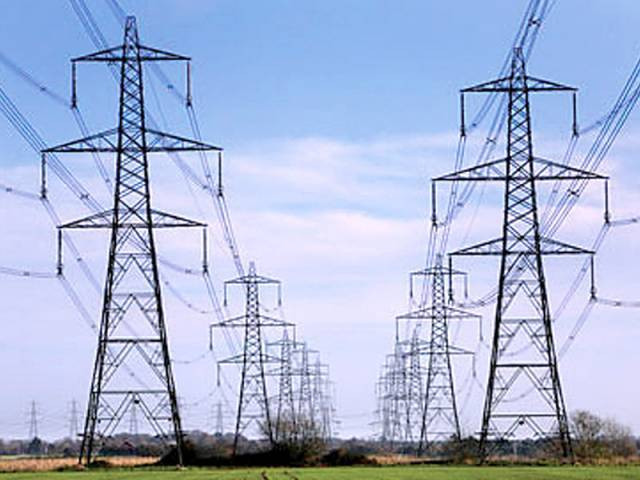Power consumers repaying Rs180b borrowed by govt
Senator insists tube wells must run on solar energy to control shortfall

Senator Bahramand Khan Tangi said people in his constituency in Charsadda district were facing up to 22 hours of power outages, though 90% of them were paying their monthly bills. PHOTO: FILE
Officials of the ministry made the disclosure in a meeting of the Senate Special Committee on Circular Debt called by Senator Shibli Faraz.
Faraz pointed out that the PML-N government never encouraged use of alternative energy sources nor was private sector supported to install such plants. “The government had deliberately discouraged this sector in order to exploit costly sources of energy,” he remarked.
Faraz suggested that in order to control power shortfall and circular debt, tube wells must be switched to solar system and monitoring of water table should be done effectively.
More outages feared as circular debt rises
Power Division Joint Secretary Zargham Eshaq Khan clarified that there was no ban on power generation from alternative sources and anybody could do business in that area.
Alternative Energy Development Board Chief Executive Officer Amjad Awan revealed that around 1,036 megawatts of alternative energy was being supplied to the national grid.
Solar photovoltaic power projects were generating 430MW and the Quaid-e-Azam solar power plant had not failed, instead it was also producing electricity, he said.
Apart from these, he added, generation licences had been obtained and tariff determined for 16 bagasse-based power plants that had a cumulative capacity of 132.4MW.
Awan agreed that people had not been sensitised about alternative energy nor was any awareness campaign launched.
Briefing the committee, the chief executive officer of Quetta Electric Supply Company (Qesco) pointed out that 74.14% of electricity was being consumed by agricultural consumers in the company’s jurisdiction.
He revealed that water level in areas covered by Qesco had dropped from 300 feet below ground to 850 feet and a main reason was the tube wells, numbering 327,000, that were running in such areas.
“Balochistan government is not paying its electricity dues; it has paid only Rs3.4 million out of arrears of Rs12.5 million,” he claimed.
The CEO said electricity bills for tube wells had been capped at Rs75,000, of which the owner would pay Rs10,000. From the remaining, 60% would be paid by the provincial government and 40% by the federal government, but that system also added to the circular debt.
Circular debt at Rs573 billion, influential people major defaulters
Earlier, he said, farmers were paying Rs4,000 and after increase in the ceiling to Rs10,000, most of them stopped paying the bills.
Electricity demand in Balochistan stands at 1,800MW, but it is being supplied only 1,000MW. Of this, 230MW is consumed by domestic and industrial consumers and the remaining is used by tube wells.
The Power Division joint secretary revealed that the division had sent PC-I to the Planning Commission for switching 10,000 tube wells from grid electricity to solar power in Balochistan.
In the last fiscal year, the government had paid around Rs118 billion in power subsidy. For this year, it has set the target at Rs150 billion.
The subsidy will be provided to tube wells and to those domestic consumers that consume less than 300 units a month. Tube wells in Balochistan will be provided Rs9 billion in subsidy.
Senator Bahramand Khan Tangi said people in his constituency in Charsadda district were facing up to 22 hours of power outages, though 90% of them were paying their monthly bills. “Shabqadar grid station is staying shut,” he claimed.
Circular debt – a major drag on the energy chain
The meeting was also attended by Senator Dr Sikandar Ali Mandhro and senior officers of the Ministry of Finance, Power Division, National Electric Power Regulatory Authority, Qesco and Kot Addu Power Company.
Representatives of other energy companies operating in the private sector as well as alternative and renewable energy sector were present in the huddle as well.
Published in The Express Tribune, July 4th, 2018.
Like Business on Facebook, follow @TribuneBiz on Twitter to stay informed and join in the conversation.



















COMMENTS
Comments are moderated and generally will be posted if they are on-topic and not abusive.
For more information, please see our Comments FAQ